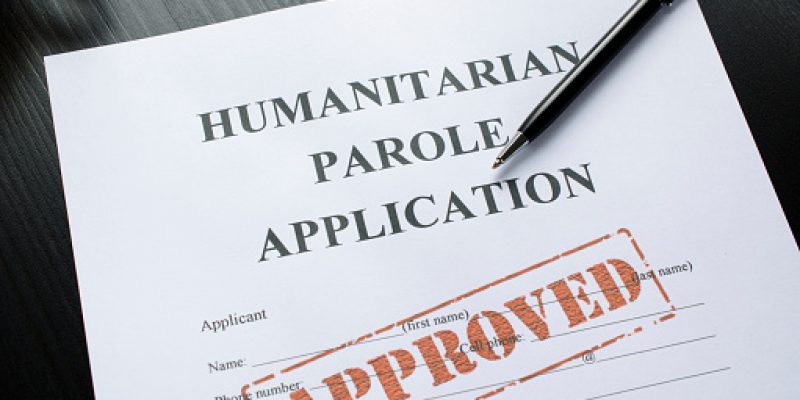On January 6, 2023, the Department of Homeland Security began accepting online applications for nationals of Cuba, Haiti, Nicaragua, and Venezuela, and their immediate family members, who are seeking safety within the United States due to the conditions in their home country. This newly implemented parole process allows certain qualifying nationals of the above countries legal entry into the U.S. The Immigration and Nationality Act (INA) Section 212(d)(5)(A) provides the Secretary of Homeland Security with the discretionary authority to parole noncitizens “into the U.S. temporarily under such reasonable conditions as [the Secretary] may prescribe only on a case-by-case basis for urgent humanitarian reasons or significant public benefit.”
A U.S.-based supporter must initiate the process by filing the Form I-134A on behalf of the intended beneficiary and, if applicable, the national’s immediate family members. The supporter may file on his or her own, with other individuals, or on behalf of a non-governmental entity or community organization.
To serve as a supporter, the individual(s) must:
- Be a U.S. Citizen, national, or lawful permanent resident, hold a lawful status in the U.S., or be a parolee or recipient of deferred action;
- Pass extensive security and background vetting for, but not limited to, public safety, national security, human trafficking, and exploitation concerns; and,
- Demonstrate sufficient financial resources to receive, maintain, and support the intended beneficiary for the duration of their parole period.
In order to be considered for the authorization for advanced travel and the grant of parole, the intended beneficiary must:
- Be outside the U.S.;
- Be national of Cuba, Haiti, Nicaragua, or Venezuela, or be an immediate family member and traveling with a Cuban, Haitian Nicaraguan, or Venezuelan principal beneficiary;
- Have a U.S. supporter who filed a Form I-134A on their behalf that USCIS has confirmed;
- Possess an unexpired passport that is valid for international travel;
- Provide their own commercial travel to an air U.S. Port of Entry and final U.S. destination;
- Undergo and pass extensive national security and public safety vetting;
- Comply with all additional requirements, including but not limited to vaccination requirements and other public health guidelines; and,
- Demonstrate that a grant of parole is warranted based on significant public benefit or urgent humanitarian reasons, and that a favorable exercise of discretion is otherwise merited.
If parole is granted, an individual may be “paroled” into the U.S. for up to two years and, under existing regulations, will be eligible to apply for and be granted employment authorization from USCIS. Parole is not an admission of the individual into the U.S., and a parolee remains an “applicant for admission” during the period of the parole.
For more information on the new parole process, please contact our office at 803-376-1203 or visit https://lneedle.com/ to request a free consultation.

